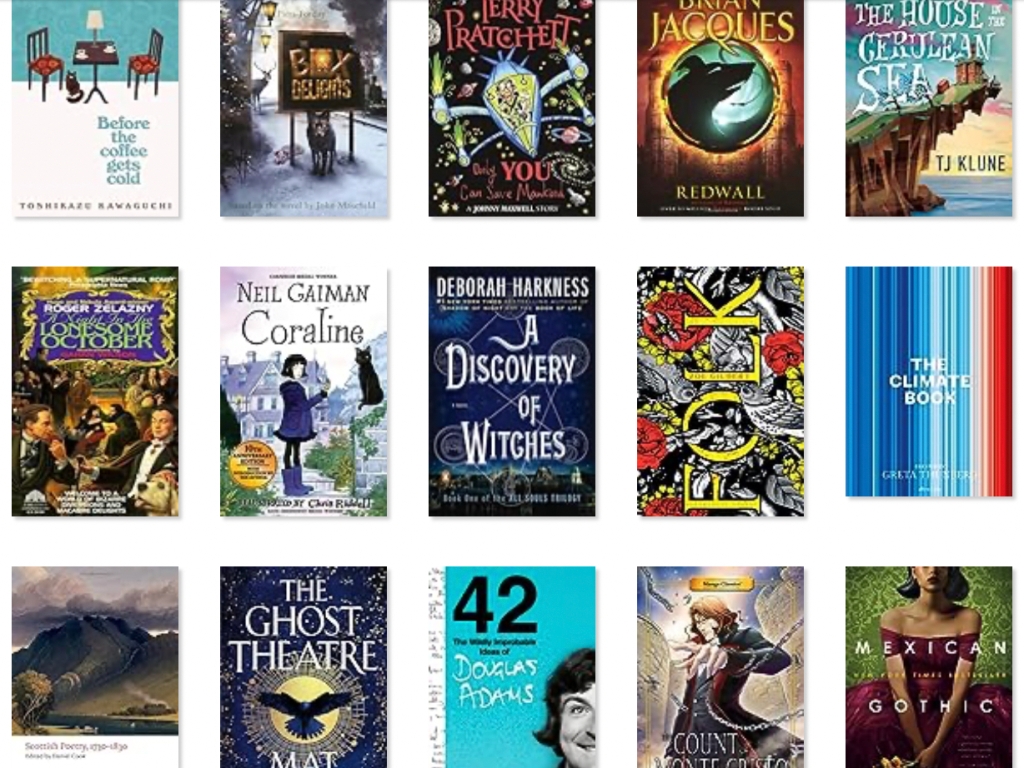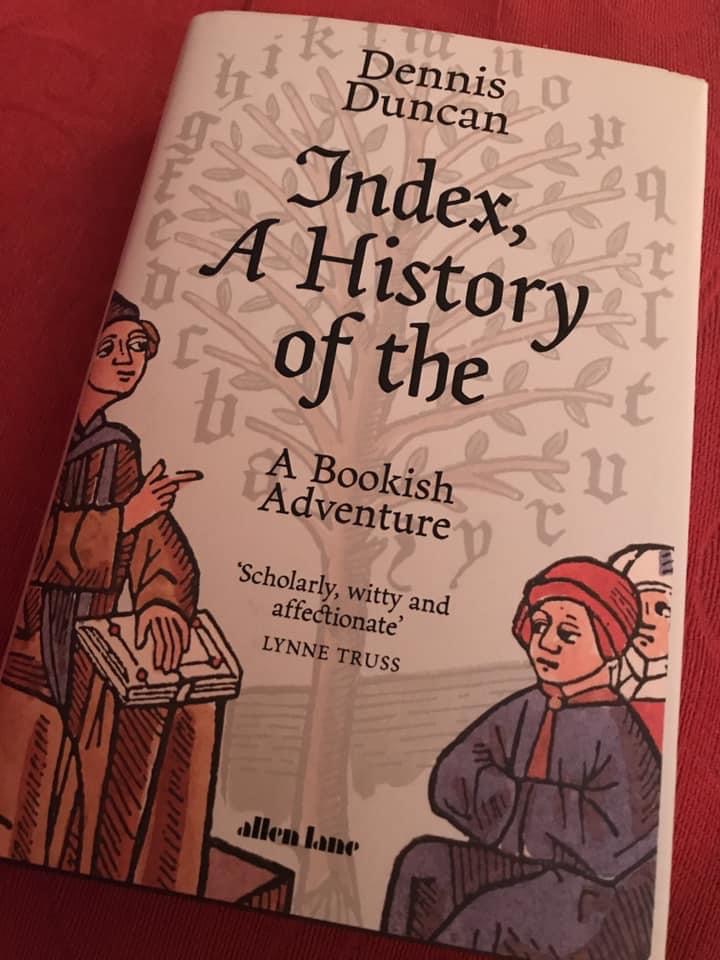End of another year, and time for another end of year reading retrospective from me, looking back at the books I read for fun in 2023. I adore reading, despite my progressive neurological disease meaning that I am often heavily sedated, and struggle hugely with print. Most books are read with an utterly gigantic font on my Kindle. But I gobble up books. I even have a PhD in historic Scottish reading habits, so it’s nice when I can gobble up books myself, and not just stare longingly at past historic readers who in some cases could read more than me!
This year I finished 60 books, almost 20,000 pages read, average 375 pages a week. Of these 42 of the books were fiction, 17 non fiction, and 1 a poetry collection. Here is a link to my full list for the year on Goodreads. And the picture below shows a glimpse of some of the books I was reading over the months.
20 of the books were fantasy genre, and 7 graphic novels or manga or comic books. Fantasy remains my favourite genre by far, and I can still read and enjoy graphic novels and manga despite my neurological problems with print. 8 books I would categorise as historical fiction (with some overlap in cases with the fantasy count), but just 6 were scifi. I read some scifi – especially Doctor Who novels – but am not a fan of hard scifi. Despite adoring since childhood first Star Trek and then Doctor Who, Babylon 5 and others. But reading is mostly about fantasy for me. I also have a fondness for children’s or YA fiction from time to time, and read 9 of those this year, ranging from old classics to modern. Only 5 of my reads this time were horror genre.
In some recent years I’ve reread a lot of much loved novels for comfort. There was less of that this year, though I reread a few, such as my annual pre-Halloween read of Roger Zelazny’s A Night in the Lonesome October. I continued my slow Wheel of Time read, with 3 more novels in that series – up to the end of number 7 now, and hoping for another couple next year. Though I’ve tended towards shorter rather than longer novels. I also read some novels for the book club I’m in.
I am surprised by how many non fiction books I gobbled up. I read these alongside fiction, flitting between the two night to night. And I had some really good non fiction reads this year. In fact when I look at my top rated books and think about which books made the biggest impression on me in 2023 it’s 3 non fiction books that stand out most.
The first two were read at the very start of the year. Firstly Mensun Bound’s The Ship Beneath the Ice: The Discovery of Shackleton’s Endurance, which was a very rare in print read for me, after I managed to nab a signed copy from my local bookshop in Broughty Ferry. Even knowing the ending of the story this was still a gripping page turner. And I cried tears at the end. Another tear jerker, though happy too, was Rob Wilkins’ Terry Pratchett: A Life With Footnotes: The Official Biography. Which was a deftly written biography of a much loved author, and so phenomenally insightful. I was delighted later in the year when it won the Hugo Award for best related work.
The third standout non fiction book was The Climate Book, written by Greta Thunberg and many many others. This is probably the most important book I have ever read. Certainly the most affecting. It’s devastating in many places, but something I needed to get to grips with. And there are seeds of hope in there. But yes, just read it.
Although my favourite books were non fiction I’d like to mention my favourite fiction books of the year too. Firstly Legends & Lattes by Travis Baldree, which was a cosy fantasy, combining a traditional fantasy world and characters with the comfort of coffee shop culture. So good! Another standout was Bob Mortimer’s comic novel The Satsuma Complex, another award winning book, which had more than a hint of Douglas Adams about its writing. It felt almost like another Dirk Gently book. And so very very funny. Finally, classic scifi The Technicolor Time Machine by Harry Harrison sees a film crew go back in time in a time machine to film a Hollywood blockbuster, with totally authentic scenery and cast – real Vikings! This was utterly bonkers. A joy.
Looking ahead to 2024 I’d like to reread The Lord of the Rings, and also Our Mutual Friend by Charles Dickens – both some of my most favourite books. And long books, so I’ll be aiming more for quality than quantity. Would also like to get through a couple more Wheel of Time books. And read more books in translation. But yes, just keep reading!


